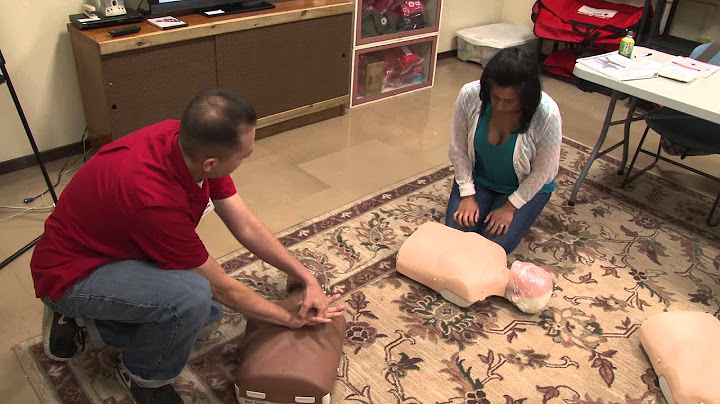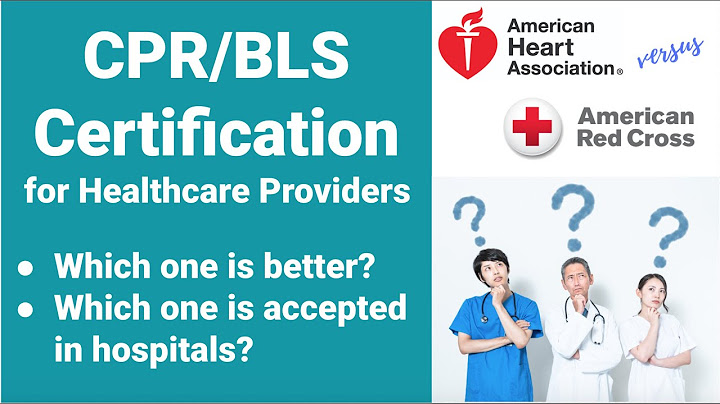Kathy Quan RN BSN PHN
Upon completion of the Nurse Practitioner program, the NP has to sit for a national certification examination to become licensed to practice as an NP. There are two certification examinations available: the AANP and ANCC certification exams. Graduating NPs can sit for either exam. Both are recognized, but they do differ in content and focus. The American Association of Nurse Practitioners is the certifying board for the AANP exam. The American Nurses Credentialing Center offers the ANCC exam. The American Nurses Association (ANA) is the governing body behind the ANCC. The AANP exam is newer and was considered by many to be “easier” as evidenced by a higher passing percentage in the past, but the ANCC being older was considered by some to be the “better” exam. It was also considered to be “harder,” as the pass rate was slightly lower. The rates have changed in the past 2 years. In 2018, the ANCC pass rate was 86.2% and the AANP rate was 85%. Approval rates judged by those who took the exams are also very close. In 2019, the AANP approval rate for FNPs was 86% and the ANCC approval rate for FNPs was 87.1%. AANP EXAMThe focus of the AANP exam is competency and clinical application. It is comprised of 150 questions with a score based on 135 questions. The other 15 questions are being tried out for future exams and are not scored. They are also not recognizable as pre-test questions. The test is scored on a range from 200 to 800 and 500 is considered passing. The AANP exam is all multiple choice, with only one right answer. It is more focused on clinical knowledge and competency. FNP (Family Nurse Practitioner), A-GNP (Adult Gerontology NP) and ENP (Emergency Nurse Practitioner) certifications are available with the AANP certification exam. The AANP exam is best recommended to those who will be practicing in clinical settings as opposed to research or education, where theoretical knowledge would be the strength. For the FNP and A-GNP specialties, the questions on the AANP exam will be entirely clinical and cover competency in Assessment, Diagnosis, Plan, and Evaluation. For the ENP, the certifying exam will also include questions on medical screening, patient management, medical decision-making (DDx), patient disposition, and professional, ethical, and legal practices. All other NP specialties must take the ANCC exam. ANCC EXAMThe AANC offers the ANCC certification exam for NPs. In 2019, the ANCC exam was updated to include more clinical questions and fewer focused solely on nursing theory and the professional role of the NP. There are 175 questions and again 15 are pre-test questions that are not scored. The exam is given over 3.5 hours. The updated exam covers 10 knowledge areas and 13 skill areas in four content domains: assessment, diagnosis, clinical management and professional role. The ANCC exam is also multiple choice, but some questions will have only one answer and others will be a “select all of the options that apply.” Additionally, there will be some “hot-spot” questions which require marking a specific area on an image. This exam also includes images such as EKG strips or physical symptoms and the NP is expected to interpret them and explain what course of action to take and why. Renewal of the CertificationBoth certifying boards require recertification every 5 years. However, the requirements vary and specify continuing education units as well as clinical practice hours. The ANCC requires 75 CE hours with a minimum of 25 CE hours in pharmacotherapeutics. The NP must also complete one or more of the following: minimum of 1000 practice hours in the specialty, take academic credits in the specialty area, provide presentations in the specialty area, participate in publication or research in evidence-based practice or quality improvement, provide professional services as a volunteer, a minimum of 120 preceptor hours, or retake (and pass) the exam. The AANP certification is also good for 5 years and offers 2 options for additional requirements to recertify. The first option is to complete 1000 clinical hours as an NP and a minimum of 100 CE hours in advanced practice courses including a minimum of 25 CE in pharmacology. The clinical hours can be completed as an employee, a volunteer or as a faculty member. Preceptor hours (125 hours) can be exchanged for a total of 25 CE credits. The second option is to take (and pass) the exam again. The educational preparation required is the same for all NPs. The choice for the certification exam is somewhat optional depending on the specialty. Both exams meet qualifications for working in a Magnet facility as well as meeting the reimbursement guidelines for insurance companies, Medicaid and Medicare. Dedicated study and test prep is a must whichever test you choose or are required to take.
 Learn more about ANCC pharmacology CEU here. FAQWhat Are The Certification Exams For Nurse Practitioners? There are two main types of certification exams for nurse practitioners: one – offered by the American Academy of Nurse Practitioners (AANP) and another one – American Nurses Credentialing Center (ANCC). Both are nationally recognized and offer NP certification. ANCC vs. AANP: Which Exam Should I Take? The AANP and ANCC exams are both valid, nationally recognized certification exams. However, there are some key differences between the two: – First, the AANP is geared more toward NPs who practice in a primary care setting, while the ANCC is geared towards those who practice in a specialty area. – The AANP exam is also more clinical in nature, while the ANCC exam is more conceptual. – The AANP exam is shorter, consisting of 175 questions, while the ANCC exam has 250 questions. They are also different in terms of content. The AANP focuses on holistic, patient-centered care while the ANCC exam is more focused on medical-surgical care. Ultimately, which exam you take depends on your individual career plans and professional practice setting. If you’re not sure which exam is right for you, speak to your nurse practitioner mentor or other NP professionals in your area. Do I need to be certified by both AANP and ANCC? No – you only need to be certified by one or the other. However, many nurse practitioners choose to become certified by both organizations in order to demonstrate their breadth of specialized knowledge and skills. Is the AANP easier than the ANCC exam? This is a common question, but there is no clear answer. Both exams are challenging and require a significant amount of study and preparation. The AANP exam may be shorter, but it is also more clinical in nature. The ANCC exam is longer, but it covers more conceptual material. Ultimately, the level of difficulty depends on you individually. What You Should Know About the AANP and ANCC Exams? The AANP and ANCC practice exams are both multiple-choice exams. They cover similar content areas but the AANP exam has more of a focus on clinical management and practice, while the ANCC exam has a stronger emphasis on evidence-based practice. Both AANP and ANCC offer certification exam for nurse practitioners in all primary care specialties: adult-gerontology, family, pediatrics, and women’s health. What about the certification duration and renewal? The AANP certification is also good for 5 years and offers 2 options for additional requirements to recertify. The first option is to complete 1000 clinical hours as an NP and a minimum of 100 CE hours in advanced practice courses including a minimum of 25 CE in pharmacology. The clinical hours can be completed as an employee, a volunteer or as a faculty member. Preceptor hours (125 hours) can be exchanged for a total of 25 CE credits. The second option is to take (and pass) the exam again. The ANCC requires 75 CE hours with a minimum of 25 CE hours in pharmacotherapeutics. The NP must also complete one or more of the following: minimum of 1000 practice hours in the specialty, take academic credits in the specialty area, provide presentations in the specialty area, participate in publication or research in evidence-based practice or quality improvement, provide professional services as a volunteer, a minimum of 120 preceptor hours, or retake (and pass) the exam. Do the recertification requirements differ between AANP and ANCC? Yes, the AANP and ANCC have different recertification requirements. However, every five years, both certifications should be renewed and they both require current RN licensure, while the requirements are different. If you are certified by the AANP, then you must complete 100 contact hours every 5 years in your specialty area. 25 of these contact hours must relate to pharmacotherapeutics. If you are certified by the ANCC, then you must complete 75 contact hours every 5 years in your specialty area. 25 of these contact hours must relate to pharmacotherapeutics. Are the credentials different between AANP and ANCC? Yes, the AANP and ANCC credentials are different. The AANP credential is “NP-C” (Nurse Practitioner – Certified), while the ANCC credential is “RN-BC” (Registered Nurse – Board Certified). Besides that, the AANP credential is ANCC-recognized, meaning that it meets the eligibility requirements for taking the ANCC nursing certification exam. The AANP credential is also recognized by the National Commission on Certification of Physician Assistants (NCCPA). What is the AANP Certification Board? The AANP Certification Board (AANPCB) is a separate entity from the AANP. Is an independent nonprofit organization responsible for developing, administering, and evaluating the AANP certification exams. What is the ANCC Certification Corporation? The ANCC Certification Corporation is a not-for-profit subsidiary of the American Nurses Association (ANA). The ANCC Certification Corporation is responsible for developing, administering, and evaluating the ANCC certification exams. What Certifications Are Available? There are many different types of AANP and ANCC certification exams, each geared towards a different nurse practitioner specialty expertise. AANP has certification offerings in the following specialties: – Adult-Gerontology Primary Care Nurse Practitioner – Family Nurse Practitioner – Geriatric Nurse Practitioner – Pediatric Nurse Practitioner – Women’s Health Nurse Practitioner ANCC offers certification opportunities in the following specialties: – Adult Gerontology Acute Care Nurse Practitioner – Adult Gerontology Primary Care Nurse Practitioner – Family Nurse Practitioner – Neonatal Nurse Practitioner – Pediatric Nurse Practitioner – Psychiatric Mental Health Nurse Practitioner – Women’s Health Nurse Practitioner Which certification should I pursue? This is a personal decision that depends on your individual professional development, goals and interests. Some nurse practitioners choose to become certified in more than one specialty, while others focus on one area of expertise. How long are the exams?. The AANP exam is approximately 3.5 hours long, while the ANCC exam is approximately 6 hours long. What are the pass rates? The average pass rate for AANP is 86%, while the ANCC passing score is 80%. What happens if I fail the exam? AANP and ANCC have different policies regarding retake exams. AANP allows a retake exam if the individual fails the first attempt, but there is a waiting period of 90 days. If an individual does not pass the exam on the second attempt, AANP requires that individual to wait one year before attempting the test again. ANCC, on the other hand, requires a waiting period of only 45 days. There is no limit to the number of times an individual can retake the exam. 12 thoughts on “What’s the difference between AANP and ANCC Certification?”
Leave a ReplyThis site uses Akismet to reduce spam. Learn how your comment data is processed. Recent Articles Career NursingCE.com September 30, 2022
 Career Kathy Quan RN BSN PHN September 21, 2022 NEED CEUs?See our catalog today! |

Related Posts
Advertising
LATEST NEWS
Advertising
Populer
Advertising
About

Copyright © 2024 berikutyang Inc.


















